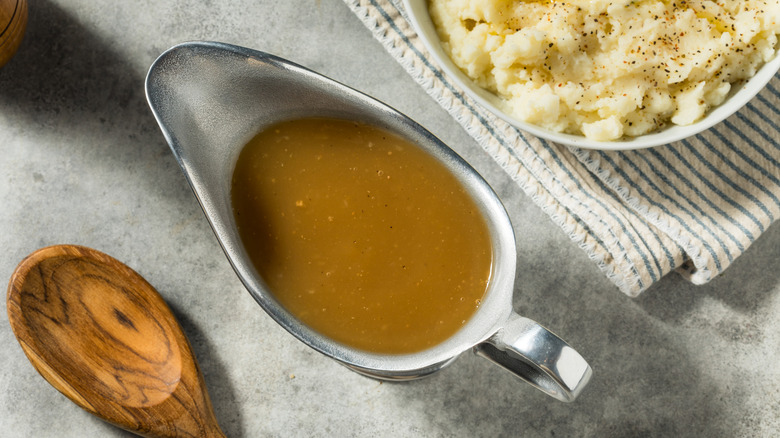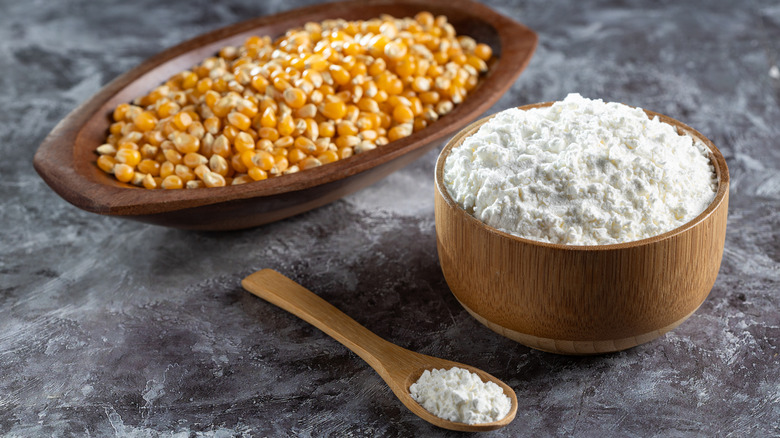The Simplest Way To Make Gluten-Free Gravy Requires One Pantry Staple
There's never been a better time to be gluten free. Chefs and bakers have figured out how to make everything from whole grain bread to cereals, pastries, and pasta for people who suffer from celiac disease or are otherwise gluten intolerant. But sometimes, instead of shopping for something premade, the answer to a gluten-free dilemma is the simplest, which is the case when making gravy. Instead of thickening the sauce for your next round of classic Salisbury steak with mushroom gravy with flour, reach for the cornstarch instead.
Cornstarch is a fine, white powder that's made from the endosperm of corn kernels, which is the chalky white stuff contained inside the skin. The plant uses this starch to supply energy to the seed during germination, and we use it to make all sorts of corny products, including corn syrup, ethanol, and yes, cornstarch. Just like flour, cornstarch can thicken liquid when it's heated to a certain temperature, but it has the advantage over its wheat-based brethren because it contains zero gluten. There are a few distinct differences, however, especially when it comes to volume and adding it to a pot of hot liquid.
Use a slurry to thicken gravy
The big difference between cornstarch and flour that you need to know is that cornstarch has nearly twice the thickening power of flour. So for example, if a gravy recipe calls for two tablespoons of flour, swap in just one tablespoon of cornstarch.
Cornstarch will also start to thicken very quickly when it reaches around 203 degrees Fahrenheit, so it's best to either mix it into some fat and make a roux first — or mix it with water to make a slurry if the liquid is already hot. The simple rule of thumb to thicken anything with cornstarch is to make a slurry to prevent the starch from clumping. Just mix equal parts cornstarch to water, cold stock, or broth, and then mix it into the pot. If you're starting from a roux, add the liquid very slowly, and always use a whisk to stir gravy to further prevent clumps.
Finally, while all cornstarch is gluten-free in its natural form, be aware that some brands may produce cornstarch in places that can't guarantee there isn't cross-contamination. One of the safest choices is Bob's Red Mill, which produces its starch in a gluten-free facility and performs an ELISA Gluten Assay test to make sure it's safe for celiac sufferers. There are plenty of other gluten-free brands on the shelves, too — just be sure to always read food labels carefully, and look for warnings. With some careful shopping, you can make your gluten-free gravy dreams a reality.


